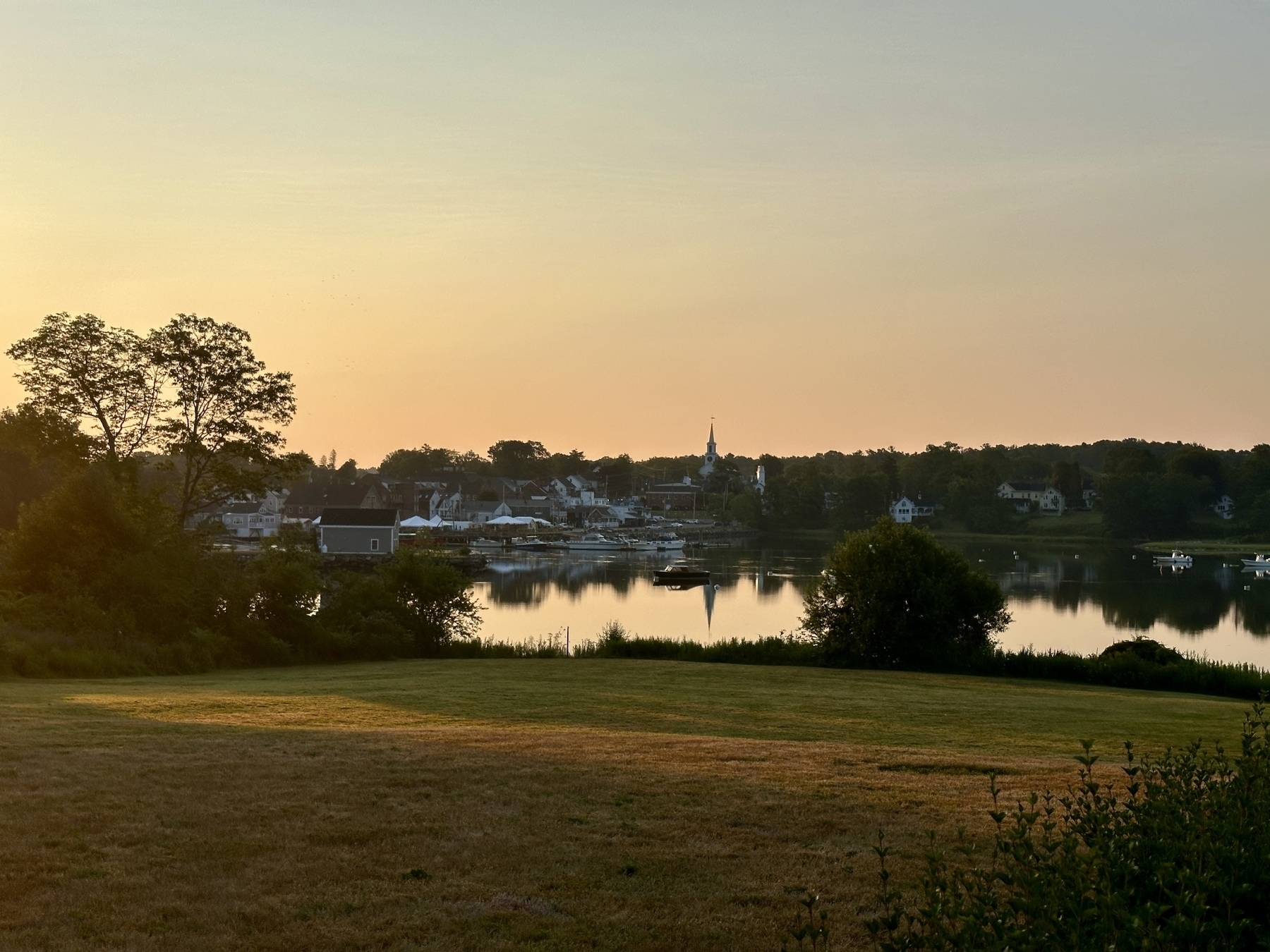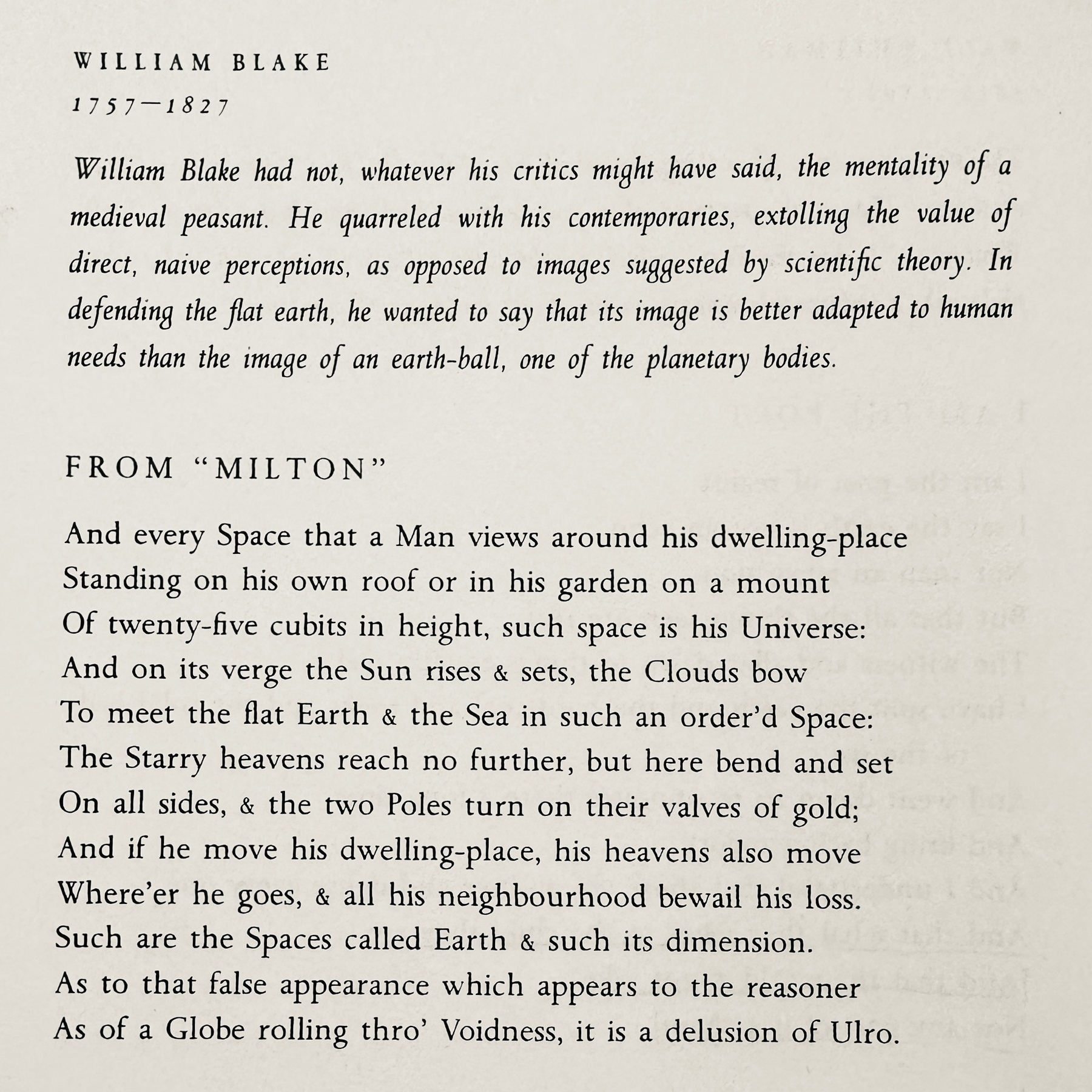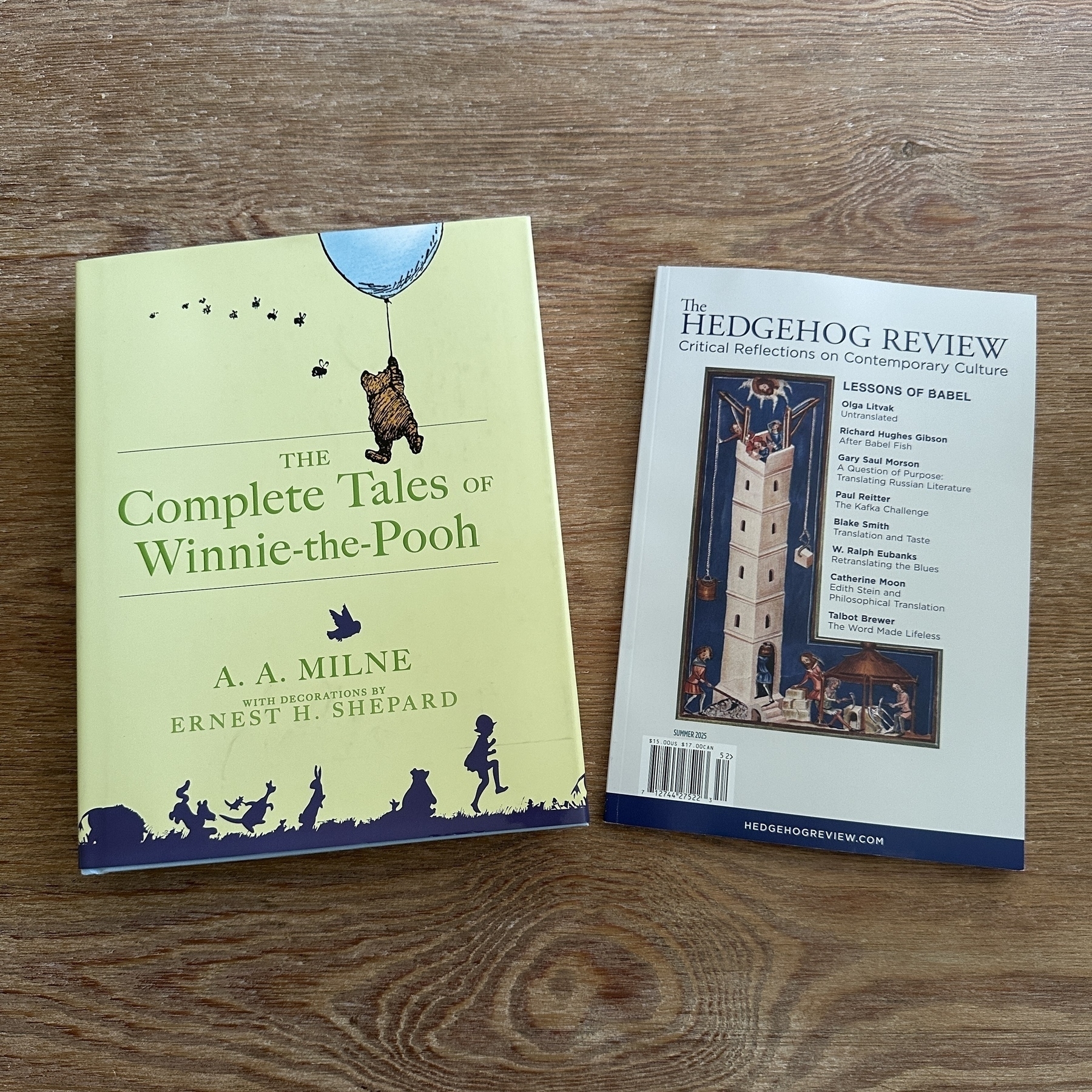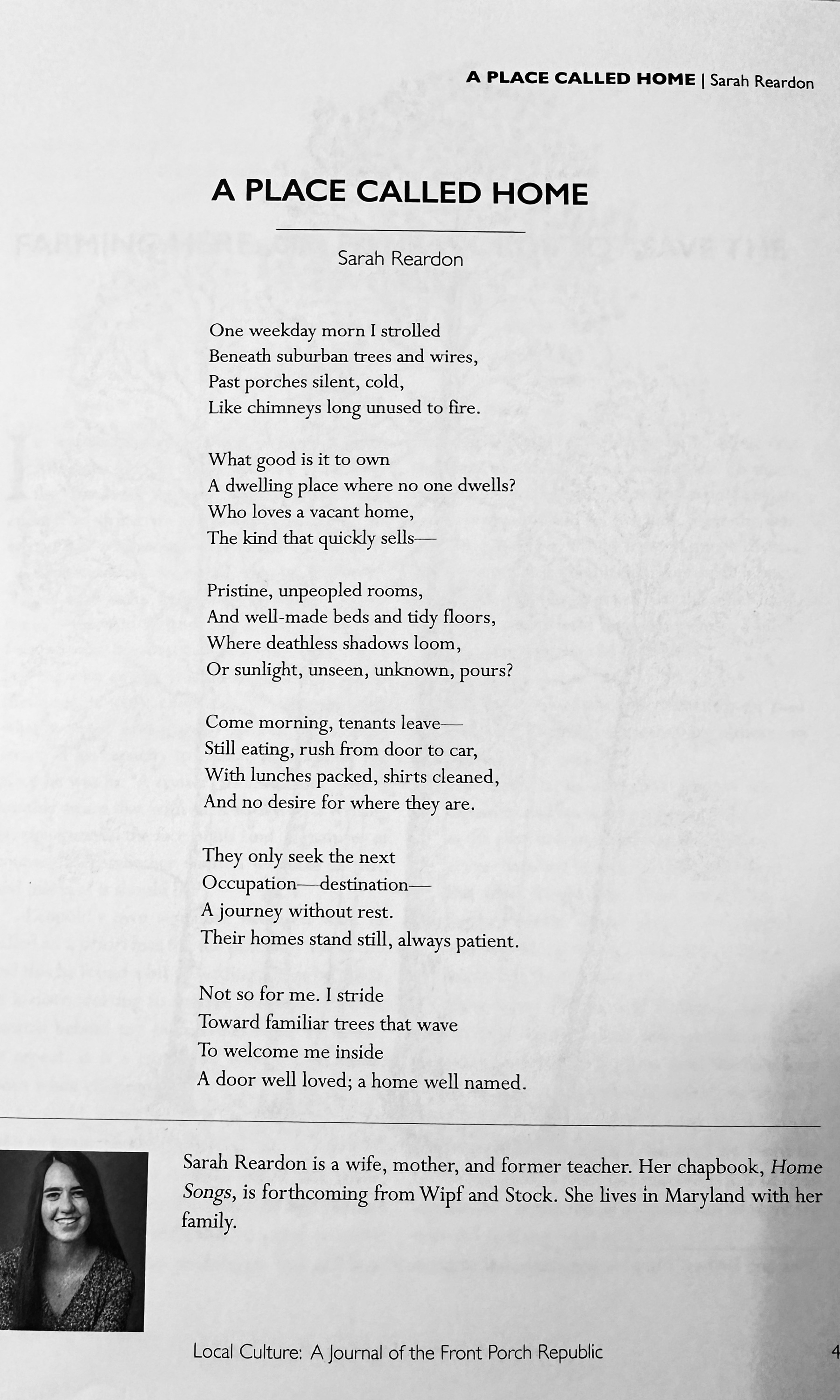Damariscotta dawn

Damariscotta dawn

Dear UK,
I get why you think it’s a good idea, but someone is most certainly, and not for the first time, turning over in her grave.
Jonathan Pageau’s essay “Most of the Time the Earth is Flat” has long been a favorite. But now I know that William Blake said it first. (Italicized commentary is from Czeslaw Milosz in 1996.)

“Craftsmen of the Spiritual Life” — Steve Robinson and Frederick Buechner juxtapose nicely
Sons of the Second Sons — James McMurtry
Hitchens, 16 years ago:
We might remember that this is a Nobel committee that let Vladimir Nabokov and Jorge Luis Borges go to their graves unrecognized.
(Just in case that thing were to happen and you were tempted to lose sleep over it.)
A brief thought on Olga Litvak’s treatment of “confessions” in her essay “Untranslated.”
Man, Hog Blog and Winnie the Pooh — on the same day!

